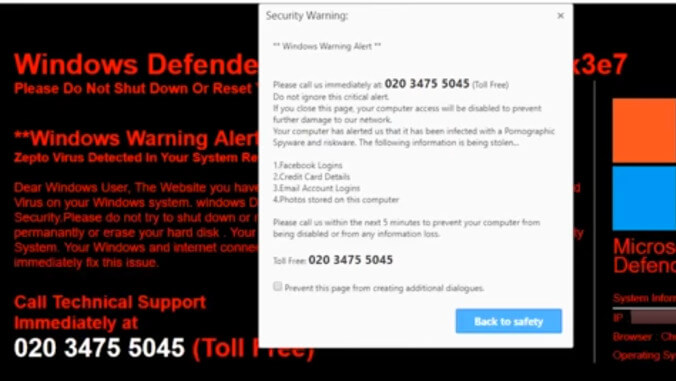Tech scammers try to rip off hacker, get their CCTV cameras and computers hacked in response

Tech support scammers make money by preying on vulnerable internet users, freaking them out with fake malware alerts that lead to phony help lines where agents ask for money in exchange for a solution. While plenty of people know how to avoid these kind of scams, others are terrified of them, and can lose not just money, but the sort of important personal information that leads to identity theft in the process.
A guy who goes by “Jim Browning” has just exposed one of these groups—a Delhi, India-based outfit that operates under a number of fake names, including Faremart Travels—by getting in touch with a “virus removal” support number and hacking into their servers to monitor their work and record the office through their CCTV cameras.
In the first installment of a four-part series called “Spying On The Scammers,” Browning describes how he accessed the scammers’ systems, reversing the connection between their computers and his in order to get into their files and their building’s camera system. Once inside their network, Browning locates Faremart Travels’ office, which is hidden from the police by surrounding itself with legitimate businesses, views work logs, and listens to recorded calls showing how they dupe those who call them. (In one, a woman worries about how she can afford the payment requested of her.) The most fascinating aspect of Browning’s hack is his use of camera streams to see the scammers as they take calls.
Although it’s a bit creepy to see people unknowingly monitored via CCTV footage, there’s something cathartic about watching scammers who take advantage of others’ naïveté being recorded as they sit at their computers, laughing to each other about ripping off callers. He also uses the footage to match the scammers’ aliases with their actual names.
Browning passed his work along to the BBC, which produced a documentary (watch the trailer here) about his discoveries and followed the trail to identify who profits from the tech support scam he exposed.
Browning’s channel will release the remaining three parts of the series throughout the rest of March, which is aimed at helping to raise awareness about these kind of scams and stop people from being duped by them.
Send Great Job, Internet tips to [email protected]